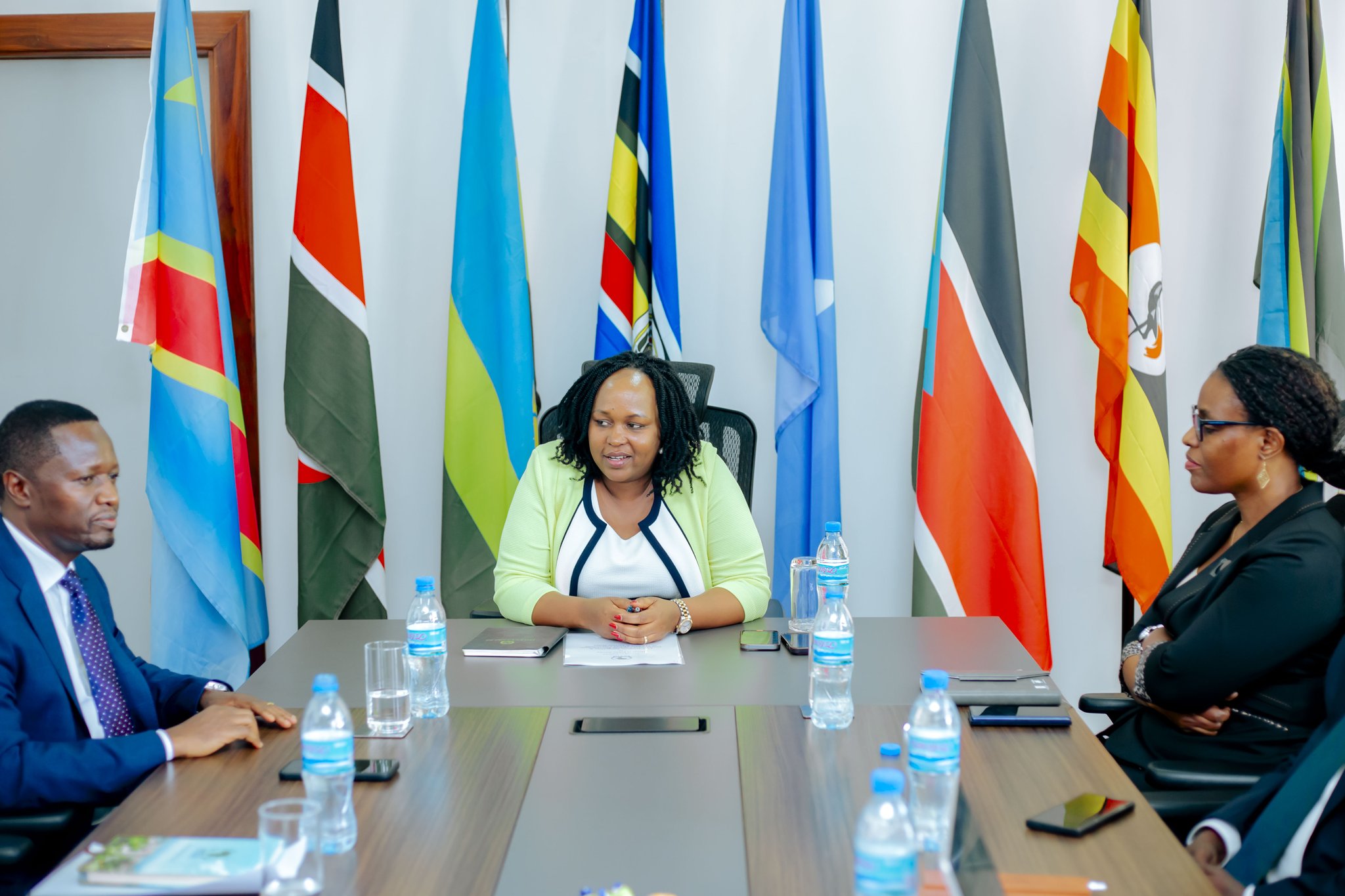Embrace AI to ease customs procedures, EAC urged

ARUSHA: THE East African Community (EAC) Secretary-General, Ms Veronica Nduva, has called on Customs authorities in EAC partner states to adopt advanced tools, including artificial intelligence (AI), to streamline customs procedures across the region.
Ms Nduva said at a ceremony to mark the International Customs Day held recently at the EAC Headquarters in Arusha that the integration of AI would not only enhance efficiency but also aid in combating illicit trade within the region.
Ms Nduva urged customs authorities to simplify and demystify customs procedures, making them more accessible to stakeholders and the public.
She said that true integration in East Africa is centred around the people at the grassroots level. “The work of customs officers has evolved over time.
They have become key facilitators of trade,ensuring the security of goods and protecting revenue,” said Ms Nduva. “Now, their role also includes raising public awareness, building capacity and fostering cooperation among stakeholders.”
She reiterated that the Customs Union, as the first pillar of EAC integration, has played a pivotal role in ensuring the free flow of goods, reducing trade barriers and strengthening economic cooperation among partner states.
“The Customs Union has enabled the seamless movement of goods, which has significantly reduced trade barriers and fostered greater economic collaboration across the region,” she added.
The Secretary-General pointed out that the EAC’s customs ecosystem has produced several positive outcomes, such as the elimination of intra-regional tariffs, which has facilitated the free movement of goods within the region.
“As a result, intra-EAC trade has experienced significant growth, with key exports including agricultural products, manufactured goods and petroleum products,” said Ms Nduva.
“In 2023, EAC’s total trade with the rest of the world rose to 80.6 billion US dollars, up from 78.7 billion US dollars in 2022. Foreign Direct Investment (FDI) grew from 3.7 billion US dollars in 2013 to 12.9 billion US dollars in 2021, reflecting increased confidence in the region’s trade systems.”
ALSO READ: Be wary of artificial intelligence, public urged
The SG also mentioned the adoption of a Common External Tariff (CET), which helps regulate imports from outside the EAC, safeguarding local industries.
She also noted the implementation of the Simplified Trade Regime (STR) to support small-scale cross-border traders by reducing customs bureaucracy.
“Traders with goods valued below 2,000 US dollars benefit from a simplified, hassle-free clearance process with assistance from customs officials stationed at border stations,” Ms Nduva explained.
The introduction of regional electronic cargo tracking systems (RECTS) and a single customs territory (SCT) has also played a key role in reducing smuggling and increasing tax revenues, according to the Secretary-General.
“The digital systems we’ve implemented have greatly improved customs efficiency and transparency,” she said.
Furthermore, Ms Nduva noted that the EAC is actively working to eliminate Non-Tariff Barriers (NTBs), bureaucratic procedures and restrictive trade policies.
A dedicated online NTB Monitoring Mechanism has been established to help report and resolve trade challenges. During the ceremony, President of the Federation of East African Freight Forwarders Associations, Mr Charles Rubaale Mwebembezi said that the private sector would continue auditing customs systems to ensure they improve.
He underscored the need for simplifying customs procedures, reducing delays, eradicating corruption and promoting publicprivate collaboration to address issues in the customs sector.
Senior Advisor for Trade and Infrastructure at the Tony Blair Institute, Mr Alban Odhiambo called for a shift in mindset as the continent embraces new technologies.
He pointed out that despite technological advancements, challenges such as truck congestion and delays at border posts still persist.
The forum also featured online addresses from Mr Dan Saunders, Secretary-General of the World Customs Organisation and Ms Celine Bacrot Economic Affairs Officer, Trade Facilitation Section, UN Conference on Trade and Development, Geneva, Switzerland.
The event was attended by the EAC Deputy SecretaryGeneral in charge of Customs, Trade and Monetary Affairs, Ms Annette Ssemumwemba, EAC Director of Customs, Ms Flavia Busingye, as well as representatives from partner organisations and staff from EAC Organs and Institutions.





